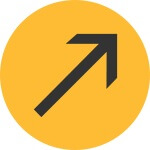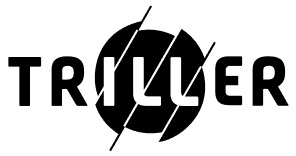Java API Legal Ruling Could Change Coding Forever
The arising question regarding Oracle vs. Google Java copyright lawsuit ruling in Washington, D.C., held on May 9 is whether the ruling is a headstrong blow against the routine procedures to save time and workload in software development or not? It might be! If this ruling ultimately holds upright then it will lead in upsetting majority of the developers in the market who looked over their shoulders each time whenever they used an API, interfaces used by apps to communicate with other applications, for some open-source development project or who wished to opt for a short cut to re-enter, copy or paste any routine code.
Let’s Retrospect
The 2012 Circuit Court ruling was overturned by a three-judge U.S. Court of Appeals of Washington recently. It declared that Oracle has the entitlement to copyright Java application programming code or interfaces that are the basic components of open-source Android OS. As per this order, Oracle is free to continue its copyright suit against Google. Still many more litigations will be held before the final verdict.
History
Android powers nearly 50% of the smart phones across the globe. It was developed by Google and is ranked as the most commonly used operating system for majority of the mobile devices. Its Kernel is Linux based. In the 90s, Sun Microsystems developed Android upon Java. However in 2010, Oracle overtook Sun Microsystems making Android as its property.
In August 2010, Oracle filed a suit against Google. Oracle claimed that Google made illegal use of seven Java APIs that were owned by Oracle to strengthen Android as an Operating System. After Litigation tenure of four years, the number declined from seven to just three JAVA APIs. Google made it lucid that it’s used APIs could not be copyrighted or else it was same as copyrighting a method to perform a particular task. As per the legal norms, methods are not intellectual property. However on May 9, the federal court declared that JAVA APIs are not methods.
Oracle claimed that the blueprint and execution of the JAVA APIs are not involved under any method of operation or system. Oracle thought that this lawsuit will turn out to be a benchmarking era in the story of software development intellectual property.
Where The Problem Stands?
Majority of the software developers believe that replicating the APIs of the open-source software is acceptable! Moreover, the definition of open-source makes it a public-domain too. However, in the suit filed by Oracle, it claims that copyright ownership over the Java interfaces and not the Java code, high graded names and architecture, API’s including metadata are handy in organizing the Java code and describe what its purpose is!
However, this suit is declared too ground-breaking as all these intricacies were not specified earlier. The question arises that is the program code and interfaces copyrightable? This is being resolved in this lawsuit. Accordingly, if they are copyrightable then software development will change forever.
Open Source- as the name suggests, it is purely cloning of the program code and JAVA APIs executed in the open source world. This is an ever expanding phenomenon where many fundamental code lines are replica of other code involving the Apache Web server system, all the essence of Linux OS as well as various personal or business apps. If JAVA APIs are shielded by copyrights then the entire open source system development will turn on its head.
The NEWS analysis specifies that, “Copyrighting a code that performs a special function is one side; it’s other side that the proprietary metadata designs the program code and describes what it is suppose to perform.” However this case is yet not brought a conclusion to! Google is constantly investigating its legal ways. The earlier decision of this lawsuit taken in 2012 at the San Francisco Circuit Court was very interesting. It ruled in favor of open APIs to remain open- declaring Google to be right among both the parties. However, when the same case was taken to an Eastern Court, this declaration was reversed.
No one is sure that whether these contradictory geographical decisions have anything material associated with it, yet the fact remains a fact. The next level of the case is awaited to be held in Kansas City.

As a Digital Marketing Specialist, I have over 10 years of experience helping businesses improve their online visibility and reach. I have a proven track record of success in developing and executing SEO & content marketing strategies that deliver results. I am also an experienced content writer and marketer, and I am passionate about creating content that is both informative and engaging.









